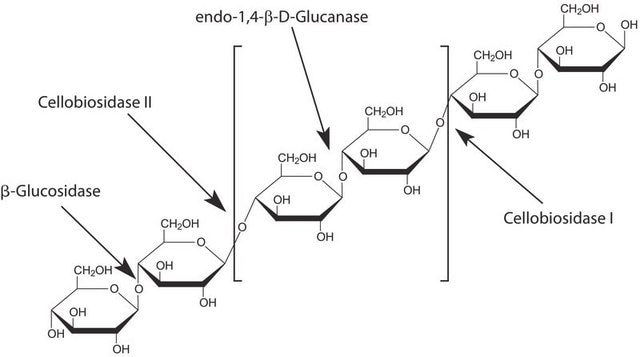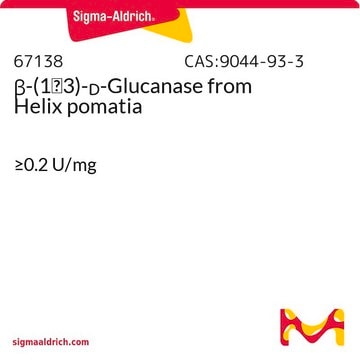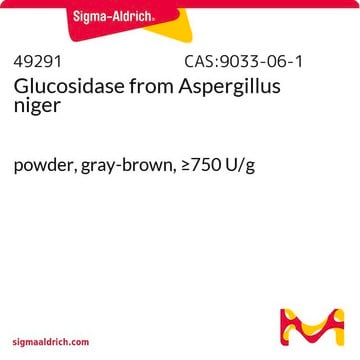E2164
endo-1,4-β-D-glucanase from Acidothermus cellulolyticus
recombinant, expressed in corn, ≥2.0 units/mg protein
Synonym(s):
Endoglucanase
Sign Into View Organizational & Contract Pricing
All Photos(2)
About This Item
Recommended Products
recombinant
expressed in corn
Quality Level
specific activity
≥2.0 units/mg protein
greener alternative product characteristics
Design for Energy Efficiency
Learn more about the Principles of Green Chemistry.
sustainability
Greener Alternative Product
greener alternative category
, Enabling
storage temp.
2-8°C
General description
We are committed to bringing you Greener Alternative Products, which adhere to one or more of The 12 Principles of Greener Chemistry. This product has been enhanced for energy efficiency. Find details here.
Unit Definition
One unit equals the amount of enzyme required to turnover 1 μmole MUC per minute at pH 5.0 and 50 °C
Physical form
Supplied as a suspension in 50 mM sodium acetate pH 5 in 3.2 M ammonium sulfate; 0.02% sodium azide
Storage Class Code
12 - Non Combustible Liquids
WGK
WGK 2
Flash Point(F)
Not applicable
Flash Point(C)
Not applicable
Choose from one of the most recent versions:
Certificates of Analysis (COA)
Lot/Batch Number
Don't see the Right Version?
If you require a particular version, you can look up a specific certificate by the Lot or Batch number.
Already Own This Product?
Find documentation for the products that you have recently purchased in the Document Library.
Customers Also Viewed
Shritama Aich et al.
Applied microbiology and biotechnology, 104(9), 3935-3945 (2020-03-12)
In a previous study, we reported an alkaliphilic and thermostable endoglucanase (BsGH7-3) of glycoside hydrolase family 7 (GH7) from the hemibiotrophic plant pathogen Bipolaris sorokiniana. However, the catalytic efficiency of the enzyme was lower than for some other endoglucanases of
Neval Yilmaz et al.
Biomacromolecules, 21(1), 95-103 (2019-09-10)
Plant cell walls consist mostly of crystalline cellulose fibrils embedded in a matrix of complex polysaccharides, but information on their morphological features has generally been limited to that obtained from nonliving plant specimens. Here, we characterized the primary cell wall
Anna Lewin et al.
AMB Express, 7(1), 183-183 (2017-10-01)
Microbial assemblages were sampled from an offshore deep sub-surface petroleum reservoir 2.5 km below the ocean floor off the coast of Norway, providing conditions of high temperature and pressure, to identify new thermostable enzymes. In this study, we used DNA sequences
Our team of scientists has experience in all areas of research including Life Science, Material Science, Chemical Synthesis, Chromatography, Analytical and many others.
Contact Technical Service








